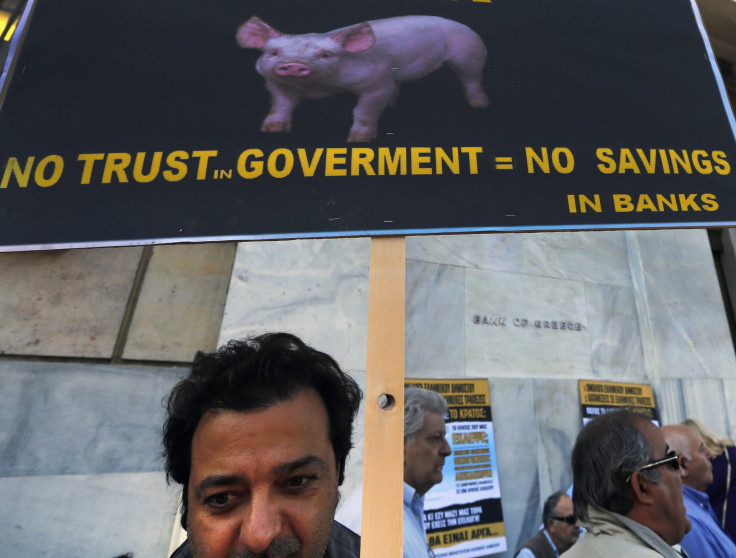Ahead Of Crucial Two Weeks, Greek Government Coalition Shatters, Two-Day Strike Called

As the financial markets turned their attention to New York City and the aftermath of a massively destructive hurricane there, half a world away in Europe, another storm was brewing as the Greek government appeared on the brink of collapse.
The headline news of the day was the very public rift between former Finance Minister Evangelos Venizelos, who leads coalition party Pasok, and Prime Minister Antonis Samaras, whose New Democracy party is another member of the now very fragile governing bloc.
According to various news sources inside Greece, Venizelos and Samaras cut friendly communications on Wednesday after Samaras went ahead with a public statement that there would be no more internal negotiations as to whether Athens would OK the deal cut by its “troika” of international lenders earlier this month, acceptance of which is a precondition for the country to receive the next tranche of its bailout aid.
The move by Samaras was particularly poignant since Venizelos had been putting out his political neck out to keep the coalition government united, reining in “rebel” members of his party who had said they would not vote with the government to accept labor and privatization reforms as part of the bailout deal.
Supporters of the prime minister said it was simply a matter of calling a tough shot in the middle of uncertainty. Previously, the government had said it wanted to close all debate in advance of a meeting today of the other euro zone finance ministers, where Greece was the main topic of discussion.
"If you insist on negative position requiring the withdrawal of labor, it forces the prime minister into a situation that is impossible to manage," unidentified government "collaborators" told a Greek financial newspaper.
"I had to end the debate on the withdrawal of labor and reset that for a separate bill," Samaras himself said.
But that move appeared to have backfired, as the government was unable to achieve a clear majority vote on accepting the bailout deal Wednesday. Both Venizelos and the leader of the other party ostensibly in the coalition, Fotis Kouvelis of Democratic Left, abstained.
Asked if the government had just collapsed, a spokesman told a press conference, “We'll see, we must clarify some things.”
Further, the foreign finance ministers whose approval the tactic was supposed to secure gave only tepid words of encouragement to Greece, noting in a statement they did not think internal negotiations in Athens were fully over and further discussion on Nov. 11 would be “subject to the completion of prior actions by the Greek authorities.”
Even worse than the insider baseball, the notice by the government that it was going forward with accepting the troika’s conditions without further negotiations sparked anger in the streets of Athens, where the country’s main labor union called for a 48-hour labor strike beginning Tuesday.
Summarizing the day’s event, an unidentified opposition member put it succinctly to Capital: "The glass cracked.”
© Copyright IBTimes 2024. All rights reserved.





















